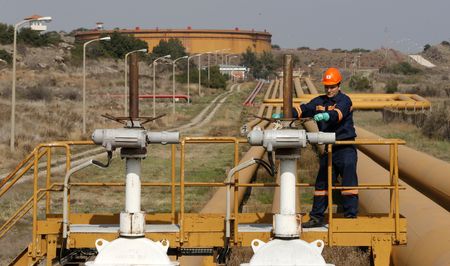(Reuters) – Russia is starting to face problems selling its crude oil and oil products as Western bans and financial sanctions over its invasion of Ukraine begin to bite.
The United States imposed a wide ban on Russian oil and gas imports, while Britain said it would stop buying its oil and oil products by the end of 2022.
The European Union, which relies on Russia for 40% of the block’s collective gas needs and about 27% of oil imports, is discussing how to phase out the use of Russian fossil fuels.
While the West continues to debate potential restrictions, some buyers appear to be shunning Russian oil anyway to avoid reputational damage or possible legal troubles.
Following are actions announced by major energy companies:
EQUINOR
Norway’s majority state-owned energy firm Equinor has stopped trading Russian oil as part of its plan to wind down its operations in Russia, the company told Reuters on March 10.
ENI
Italian energy group, 30.3% owned by the Italian government, announced on March 9 it was suspending the purchase of oil from Russia.
SHELL
The world’s largest petroleum trader announced on March 8 that it would stop buying Russian crude and phase out its involvement in all Russian hydrocarbons.
TOTALENERGIES
The French company said on March 7 it had stopped buying oil from Russia, although one of its landlocked refineries in Germany continued to receive Russian crude by pipeline.
BP
The British oil major on Feb.
28 cancelled all fuel oil loadings from the Russian Black Sea port of Taman, as Western sanctions made Russian products less attractive, sources familiar with the matter said.
(Reporting by Nerijus Adomaitis; Editing by Mark Potter and Jonathan Oatis)











